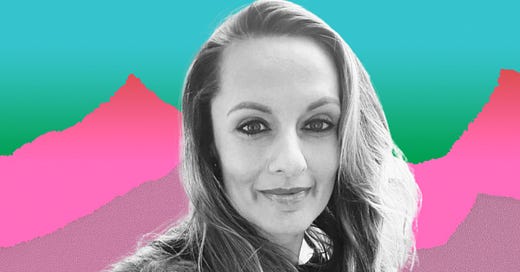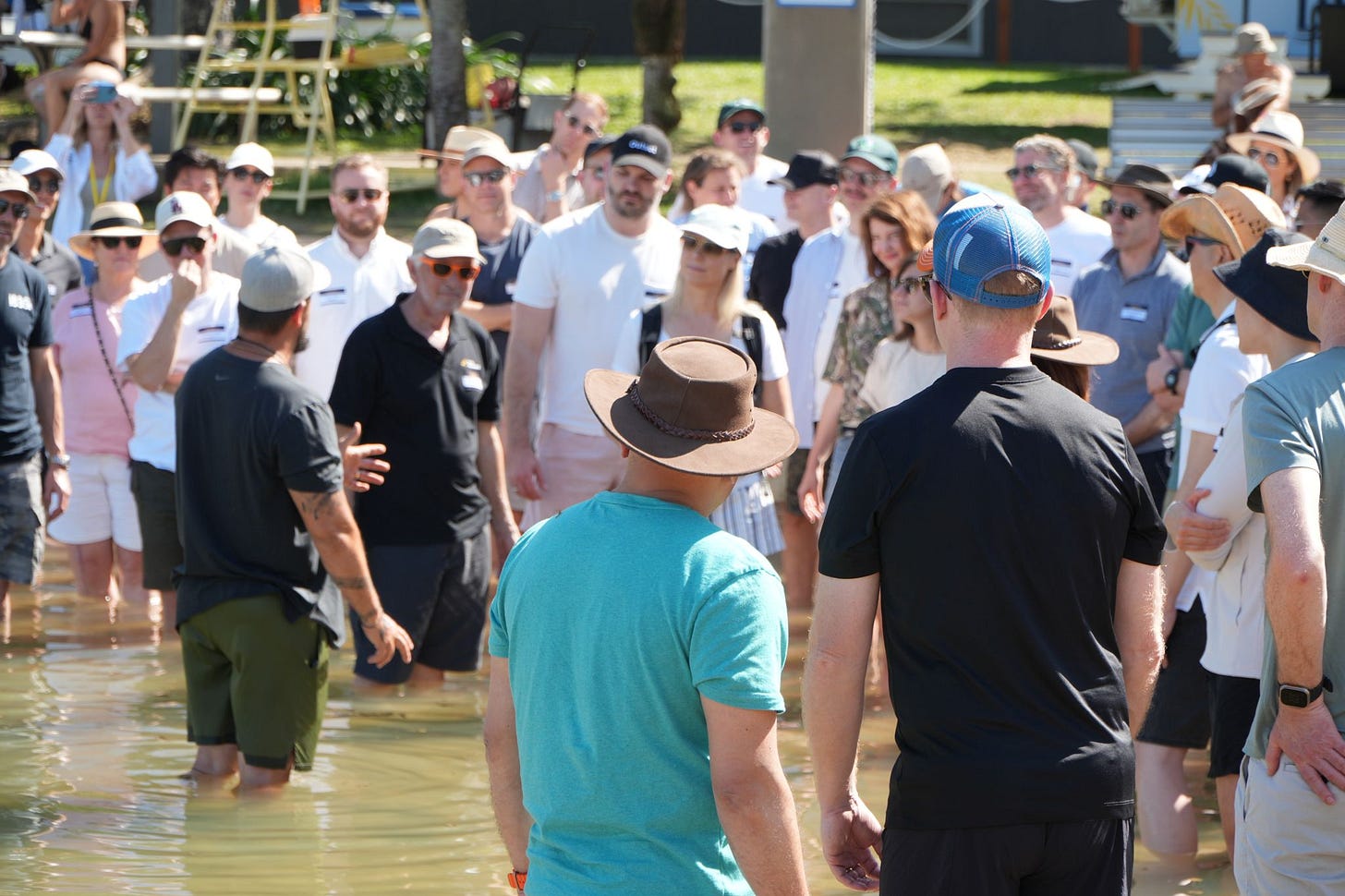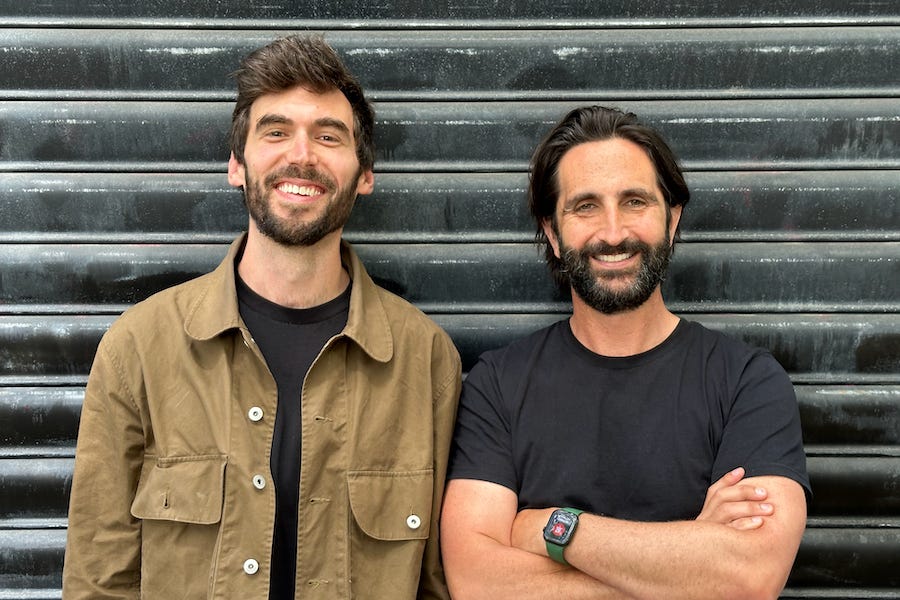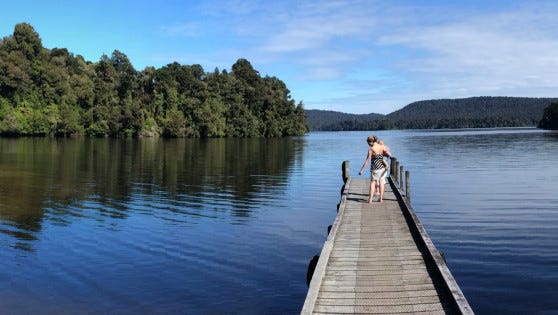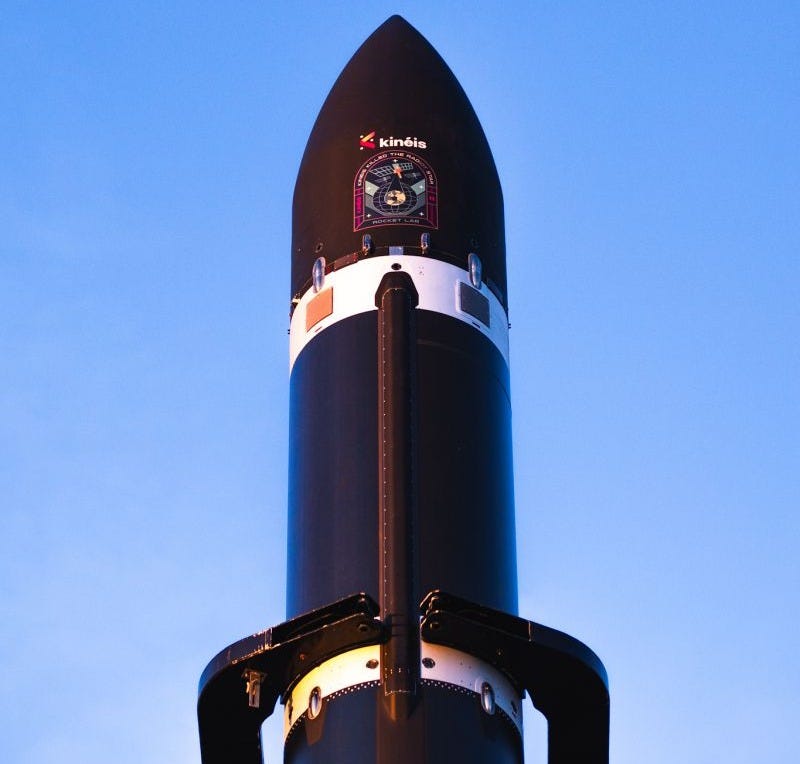Five PR mistakes NZ startups keep making
News from New Zealand's startup ecosystem, straight to your inbox.
Good morning Caffeinators,
Happy Thursday!
Today alongside your Daily Shot of startup news we’re bringing you some top PR tips from an industry pro. We realised we ask you every day to pitch us story ideas but some of you may not have a clue where to start. Jody Boshoff has been doing PR for audacious kiwi start-ups for 20yrs. Today she shares the top 5 mistakes startups make.
A key bit of advice? Stop the shyness, start making your pitch to anyone who’ll listen. (On that note, if there’s something you think Caffeine is missing, take her advice and we’d love to hear from you).
And since apparently no one told the weather Spring has started here in New Zealand, it’s also a perfect day for us to take a nosy at the northern hemisphere where the climate is warm and markets are hot. The first Fed interest rate cut since Covid just announced a few hours ago…
Sit back, sip that coffee and enjoy your Caffeine.
Finn & the Caffeine team
Innovation Bay Wraps Up VDU24: Over 100 VCs from Australia, New Zealand, Singapore, and the US gathered in Darwin for VDU24, a unique four-day event blending local culture, innovation, and networking. Led by Millie Turner and Ian Gardiner, attendees explored key challenges in venture capital, built new relationships, and gained fresh insights on working with founders. Hosted by the Larrakia people, the event gave VCs a chance to pause, reflect, and recharge, all while immersing in the beauty of the Northern Territory. Innovation Bay looks forward to building on the momentum from this unforgettable experience. More.
Kiwi AI Startups Going Global: At the recent Aotearoa AI Summit, Kiwi startups Script Sense and Prosaic showcased how they are leveraging AI to expand globally. Both companies participated in Callaghan Innovation’s AI Activator programme, which helps Kiwi businesses adopt AI for increased productivity and competitive advantage. Script Sense, an award-winning platform, enhances pharmacy efficiency and patient care by using AI to reduce administrative tasks. Prosaic, on the other hand, helps small businesses and accountants automate expense deductions using AI and open banking. Both startups are positioning themselves to take their innovations to the global stage. Read more.
Paddy Gower’s Brainy Discovery: Kiwi Ingenuity in Action: Veteran journalist Paddy Gower recently experienced firsthand the cutting-edge innovation of Kitea Health, an Auckland startup developing the world’s first fully implantable brain pressure sensor. Gower marvelled at the ingenuity behind the device, which allows people with hydrocephalus to monitor fluid levels in their brain without invasive procedures. With huge potential in both brain and heart health, Kitea Health has gained international recognition and will compete for a $1 million prize at the Startup World Cup in San Francisco. A true showcase of Kiwi innovation & we love seeing these stories spread far and wide. Go Paddy! Read the full piece here.
New Zealand’s Climate Projections Now Available: For the first time, New Zealanders can access detailed climate change projections through the government’s Climate Data Initiative. Developed by NIWA with support from MBIE, this interactive map and dashboard provide insights into future temperature, rainfall, and wind patterns. Curious about what Auckland’s temperatures might look like in 30 years or how windy Christchurch will be by 2090? This tool offers the answers to help plan our future. Explore the data to understand how climate change could impact different regions across the country. Check it out here.
🚀 Rocket Lab Set for 53rd Mission Launch: Feel like a bit of cosmic action today? Rocket Lab is ready to launch its 53rd mission from Launch Complex 1 in at the southern tip of Māhia Peninsula. The Electron rocket will deploy five IoT satellites to orbit for Kinéis, with lift-off scheduled for 11:00 am NZST. Watch the live webcast here.
BlackRock and Microsoft eye AI megafund: Looks like the money hose spraying all over the AI industry is in no danger of shutting off. FT reports BlackRock is launching a $30b fund with backing from Microsoft and MGX. The fund will focus on creating infrastructure, such as data centres or power supply, to support the ever surging logistical demands of A.I. Read more here.
China start up collapse: A new report (original paywalled via Financial Times) paints a catastrophic picture of China’s startup scene. Data from IT Juzi shows the number of companies founded in China so far this year is just 260, trending below 2023's tally of 1,202 and a shocking 99% drop from 2018’s peak of 51,302. Facing a combination of demographic decline, escalating geopolitical pressure and a tightening authoritarian grip from Government, the ‘Chinese Century’ long expected by economists might never arrive.
Trump to the moon?: In between running for President, surviving assassination attempts and playing golf, Trump found time to (sort of) launch a cryptocurrency venture this week. A lengthy and often rambling X Space yesterday featured an interview with Trump alongside new details of World Liberty Financial, a decentralised finance project aiming to bring crypto to the global masses. Trump wading into the legally dubious, money saturated and poorly regulated crypto market? What could possibly go wrong.
Five PR mistakes NZ startups keep making.
With 20 years of experience in PR and media, Jody Boshoff knows the newsroom inside out. Having worked extensively as a journalist, she understands exactly what grabs a reporter's attention—and what doesn’t. As a masterful storyteller, she’s guided countless startups on how to use PR to fuel their success. Today, Jody shares the top 5 mistakes Kiwi startups are making when it comes to PR—and how to avoid them.
1. Humility is great; but not when it comes to public relations (PR).
I love New Zealand and its community of technology pros. They do, however, have one very serious flaw: they’re way too humble. Case in point: I met an engineer once who had worked on the tallest building in the world. At one point in our conversation, I told him I was putting him forward for a chat with the building industry’s leading journalist. He leaned in and whispered almost inaudibly “But why would they want to interview me?” Kiwis like to fly under the radar; to underpromise and overdeliver. Quite often, I have to convince companies that their ‘world first’ or ‘only’ or ‘best in class’ product is newsworthy. Here are three compelling reasons to get over yourself and tell your story:
It leaves a ‘breadcrumb trail’ that helps legitimise you for future investors who will look you up during their due diligence process.
A rising tide lifts all boats! We need more Kiwi success stories out there as they help build our industry’s reputation.
You are doing awesome stuff; and telling your story is a good way for you to build reputation and trust through third party endorsement. Media really is how you get eyes on your product!
2. Thinking the headline is about your product.
Plain and simple: it’s not. The media is interested in what your product can do for people; its impact on the world; and how it rewrites what has been done before. They want to know ‘why this matters to people’ / ‘what’s in it for me?’ because that’s what gets people to read further than a headline. ‘Business process optimisation tool launch’ is boring. ‘Companies use a new tool to save 20% on admin costs’ is interesting. There’s a big difference!
3. Dismissing PR services outright due to cost.
There’s a time and a place for signing up with ‘big brand’ PR agencies skilled at media buying and very large activations. It’s probably called ‘Series B’. The ‘average’ Kiwi startup probably won’t have enough news to justify such an agency’s minimum retainer but that doesn’t mean you shouldn’t think about PR at all. Some alternatives include:
Getting some PR mentoring for your in-house marketing team so that they can get better at identifying ad hoc PR opportunities; handling certain parts of the PR process to reduce cost (such as writing up a release or even a decent brief) and even actively driving PR themselves.
Thinking ‘niche’. You might not be able to secure tier 1 national coverage just yet, but there might be a targeted industry publication that is interested in hearing what you have to say.
Partnering with an agency who will take on PR work on a project-by-project basis when you need support. Even better if they are ‘outcomes focused’ and only charge when they successfully secure you a story in media.
4. Thinking you can control the story
Unless you are paying (in which case it’s called an ‘advertorial’), journalists think and write independently and this is why people trust ‘the news’. You will seldom receive a story for approval; so make sure you know exactly what you want to say in an interview and stick to your key messages (more on that below).
5. Not preparing for an interview.
If you can control the narrative, you can influence the outcome of an interview. Before chatting to the media, it’s a good idea to get some thorough media training and to rehearse replying to standard questions (like ‘What does your product do?’) as well as tricky ones (such as those about turnover, competitors or your strategy and USPs). I have seen many off-hand or ‘off the record’ comments turn into headlines the next day. Nothing you say is ever ‘off the record’, so make sure you’re happy to be quoted on absolutely everything you say. It’s also in your best interest to be as interesting as possible because a story is never guaranteed.
Launch PR serves over 100 of New Zealand’s best and brightest startups of all sizes. More here
Media isn’t easy, and over the past year, we've faced our fair share of challenges. But with readers like you, we've built something special. CAFFEINE has become a hub for startup stories, insights, and community. We've published hundreds of articles, created podcasts, and given a voice to the founders who are shaping NZ's startup scene. We believe in the power of connection and knowledge to drive startup success—and we think you do too. We've dug deep into our own pockets to keep this platform alive, but to keep going, we need your help.
If CAFFEINE matters to you, here’s how you can back us:
Founders: Become a CAFFEINE patron and help others achieve what you have. Make a donation of your choice on the button below or drop us a line.
Startup leaders: Buy a discounted subscription for your team to keep them informed and inspired. Click the ‘group’ plan on the subscribe page.
Corporates & Brands: Partner with us and show your commitment to our startup ecosystem. Buy a day, run an event, create some paid content, back our pods.
Readers: Subscribe for $15 bucks a month. Every bit helps. If you're not in a position to support please consider sharing the free feed with friends or family.
🚀 Together, let’s fuel the next wave of New Zealand startups.
That’s it for today, thanks for reading. We’ll be back tomorrow morning. Want to get in touch with a news tip, bit of feedback or just to chat? Email hello@caffeinedaily.co.
Caffeine Daily is a reader-supported publication. To receive new posts and support our work, please consider becoming a paid subscriber.


